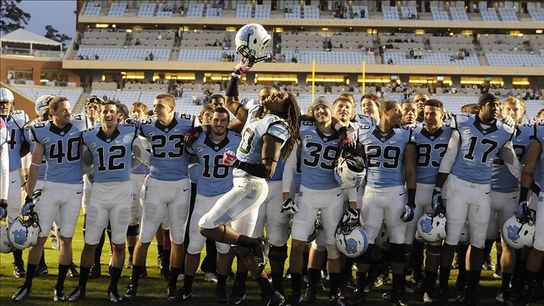Ten, five, maybe even two years from now, GPS technology will be a fact of life in the NFL and major college football. For now, though, the technology is still in its infancy, and North Carolina is the latest program to incorporate it into its training camp.
The Tar Heels have equipped 10 players with Catapult GPS units, a light compression with a GPS pouch that rests between a player's shoulder blades. The Catapult records all sorts of data, and then compares those numbers with the reports it collected back in the spring and summer.
“I definitely can see the value in it, to be able to know what kind of loads you’re putting on your team on a daily basis, how much recovery they need,” head coach Larry Fedora said. “We know what our numbers are, but what do those numbers really mean? How does it translate? So as we gather that data and we start figuring out being able to track guys and watch when they’re getting their maximum velocity and all these different things, and how much of that is happening in practice, then we can alter our practices accordingly so that we peak on Saturday and not on Thursday or not on Tuesday. That’s what we’re trying to do.”
UNC's coaches use the information to determine how hard to push players on a given day, period or rep. It's also useful in the injury recovery process.
“They’ll show you if you're cutting to one side harder than the other, or if your’e favoring one side,” said running back Romar Morris. “When I had my knee injury, they were showing my progression to see if I was cutting on each knee the same.”
The information is great, but it's up to the coaches to implement it.
“This technology really helps to tell us when we need to pull back on somebody or a group and when we need to give a little more,” said offensive lineman Chris Kapilovic. “That’s big.”
